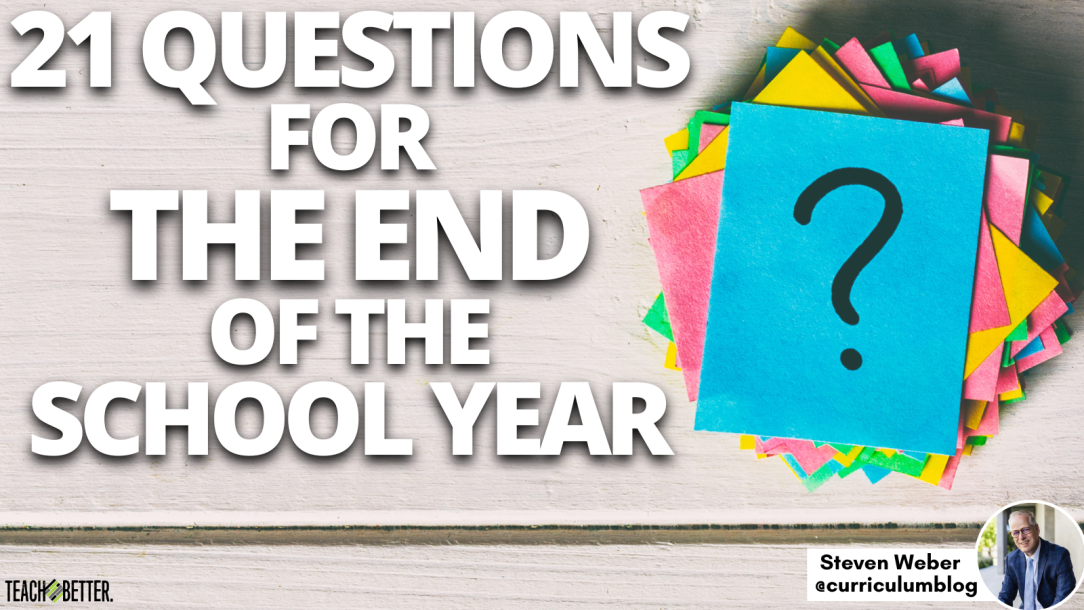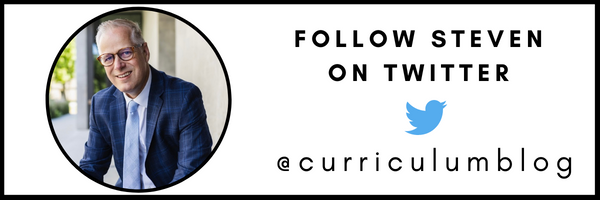TL;DR:
- The final weeks of the school year are filled with a range of emotions as students and staff say goodbye and reflect on their growth together.
- Reflecting on the instructional design, learning culture, academic interventions, relationships, equity, professional growth, and self-care can support personal and professional development.
- The importance of asking the right questions, embracing uncertainty, and celebrating the achievements and challenges of the past year is crucial for educators to continue making a difference in the lives of students and families.
Questions for the End of the School Year
Recently, I spoke with several teachers and administrators regarding the final weeks of the school year. The emotions ranged from excitement about the growth of students to the sadness of saying goodbye. Students and staff become like family throughout the course of a school year. Just like families, there are good moments, low points, and days we celebrate!
As we enter the final weeks, the focus is on our students. Schools have awards ceremonies, bounce houses, popcorn day, field trips, and high school graduation. At some point, the ceremonies and standing ovations will end and there will be time to reflect on the school year.
Pausing to reflect will support personal growth. Teachers and staff members enter the year with good intentions and goals of having a significant impact on each student. One barrier to growth for educators is hyperfocus on the students we serve. Throughout the year, teachers plan lessons, identify modifications to meet the needs of learners, plan small group instruction, analyze student data, and reteach key skills to students who need additional time and support. “Systemic reflection, not reflexive reaction, is fundamental to long-term improvement. Schools and districts must first ask the right questions” (Wagner, 1993).
Thank you for the work you do with students. As you reflect on the past school year, you may smile at the bright spots, cry about a small win, and celebrate how far students have come since the first week of school. Click To TweetInstructional Design
- What were the lessons learned from this year’s instructional design and instructional strategies?
- What would make our instruction and units of study more relevant to next year’s students?
- Which unit would I redesign? Why?
Culture of Learning
- Did the learning space support student understanding of the key skills, concepts, and soft skills that our staff identified as important?
- What is the ratio of compliance vs. contribution in my classroom/school?
- What evidence suggests that our classroom was a culture of learning? How can I create this culture with next year’s students?
Academic Interventions
- Did our school team provide adequate interventions for students this year? What would I change for the upcoming school year?
- Which academic intervention strategies seemed to have the highest impact on learners?
- How did school teams and administrators analyze the data and make data-driven decisions?
Relationships
- What did I do to develop positive relationships with students in the first weeks of the school year?
- How did our class develop a positive culture, where students felt recognized, important, and included?
- If there were some challenging moments this year (and there are in every classroom), what would I do differently related to relationships (teacher-to-students, student-to-student, and teacher-to-families)?
Equity
- Does the curriculum prepare all students with opportunities to succeed in this grade level and at the next level?
- Does school data regarding student growth and achievement highlight equity concerns that need to be addressed?
- Do students see windows and mirrors when they read classroom books and assigned materials?
Professional Growth
- What is one thing I intentionally did to grow as a professional?
- What is one book, article, or video that influenced my work this year?
- How have I contributed to the profession? (i.e., curriculum writing team, presented at a conference, mentored a new teacher, wrote a blog, served on a state committee, etc.)
Self-Care
- Which strategies help me handle the stress that goes with serving as a teacher or staff member?
- What hobbies do I have outside of work?
- What can I do this summer to relax, recharge, and return to school ready to support all learners?
Thank you for the work you do with students. As you reflect on the past school year, you may smile at the bright spots, cry about a small win, and celebrate how far students have come since the first week of school. Personal growth is important for professionals in all walks of life. These questions are not intended to be a script. Each person may find a particular question that requires deeper reflection or an emotional response.
“The trick is to become more comfortable living with a question, working on it, learning from it – and knowing that you don’t have to have an answer right away” (Berger, 2018). Congratulations on a successful school year! Thank you for making a difference in the lives of students and families!
References
Berger, W. (2014). A more beautiful question: the power of inquiry to spark breakthrough ideas. Bloomsbury.
Wagner, T. (1993). Systemic change: Rethinking the purpose of school. Educational Leadership, 51(1), 24-28.
About Steven Weber
Dr. Steven Weber is a curriculum leader. He has served on multiple state and national boards. His areas of research include curriculum design, multiplying leaders, professional learning, and school leadership.




